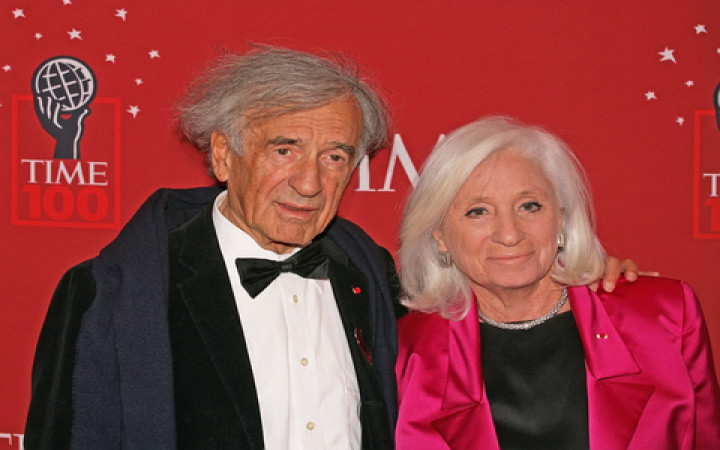Today’s Wonder of the Day was inspired by Eva. Eva Wonders, “How many Holocaust survivors are still alive?” Thanks for WONDERing with us, Eva!
Each person on the planet Earth has a story to tell. We all have different roles and experiences. You are someone’s child, a student, sibling, friend, or team member. You are all of these things at the same time. Your experiences in each of your roles shape your story.
Elie Wiesel was a son, brother, husband, and father. He was also a journalist, author, teacher, philosopher, and activist. Wiesel’s most famous role was survivor. He survived the Holocaust and his terrible experiences shaped his story, which he told again and again.
In 1944, when Wiesel was 15 years old, the Nazis gathered the Jewish people from his hometown of Sighet, Romania. Wiesel and his father, mother, and three sisters were made to leave their home. Nazis forced them into cattle cars. The trains took them to Auschwitz—a death camp. Both his mother and youngest sister were killed there. The rest of his family did hard labor in the camps. Elie worked in the rubber factory.
Wiesel and his father were part of a group of prisoners who were forced on a death march. Nazi soldiers made them run for days. Eventually, they boarded a train which took them to Buchenwald—another Nazi camp. Again, the soldiers forced the prisoners to work in terrible conditions. His father died from hunger and dysentery. However, Elie Wiesel was alive and still in the camp when American soldiers liberated it on April 11, 1945. Wiesel had survived.
After the war, Wiesel was sent to France. Eventually he reunited with his sisters, Beatrice and Hilda, who were survivors of Auschwitz. Wiesel went to the Sorbonne—a university in Paris. He studied literature, philosophy, and psychology. He did not talk or write about his experiences during the Holocaust for over 10 years.
In 1954, Wiesel was working as a journalist. He interviewed François Mauriac, a French writer. Mauriac convinced Wiesel to tell his story. Wiesel wrote his memoir, “La Nuit”—“Night” in English.
Wiesel wrote, “Never shall I forget that night, the first night in camp, that turned my life into one long night seven times sealed.” He describes his experiences during the Holocaust when he was 15 to 16 years old. “Night” became his most famous book. It has been translated into over 30 languages and has sold millions of copies.
As a survivor of the Nazi death camps, Wiesel showed great resilience. He continued to share his story. He encouraged people to remember and learn from the Holocaust. Wiesel moved to the United States, where he worked as a professor of Judaic studies and humanities . He wrote over 40 books—nonfiction texts and stories about Jewish characters who endured the Holocaust. Wiesel also led the commission that set up the United States Holocaust Memorial Museum. At its entrance, his words are etched in stone: “For the dead and the living, we must bear witness.”
Wiesel’s activism went beyond the Holocaust. He spoke out against all forms of oppression. Wiesel advocated for treating every human with dignity. He believed people should confront hatred. For his work, Elie Wiesel was awarded the Nobel Peace Prize in 1986. They honored him for “being a messenger to mankind.”
Elie Wiesel knew that words have power. He was an advocate for human rights. He believed that each of us could speak out and bear witness to injustice. What injustices do you see in the world today? How can you speak up when you see others being treated unfairly?
Standards: CCRA.R.1, CCRA.R.2, CCRA.R.3, CCRA.R.6, CCRA.R.10, CCRA.L.3, CCRA.L.4, CCRA.L.5, CCRA.L.6, CCRA.W.2, CCRA.W.3, D2.His.3, SEL.1, SEL.3




